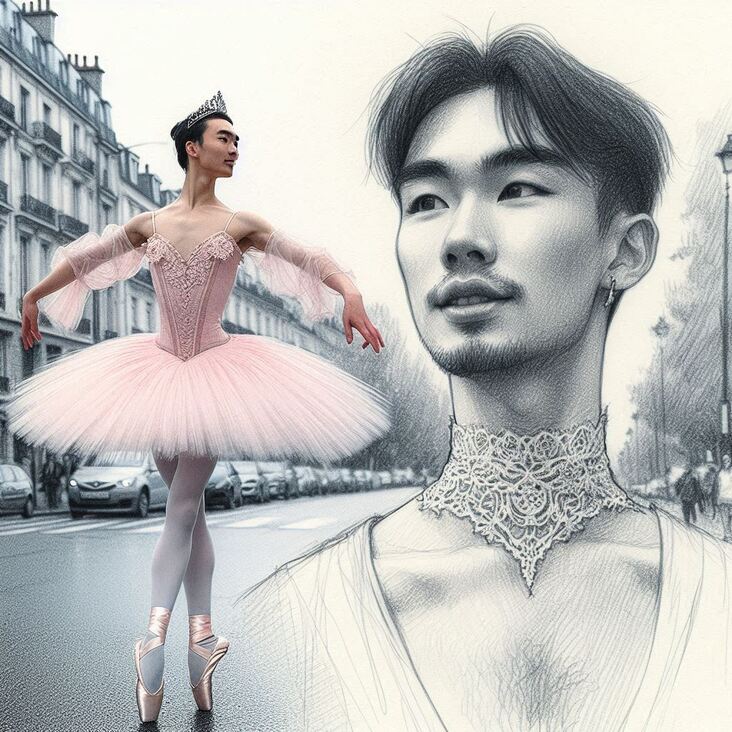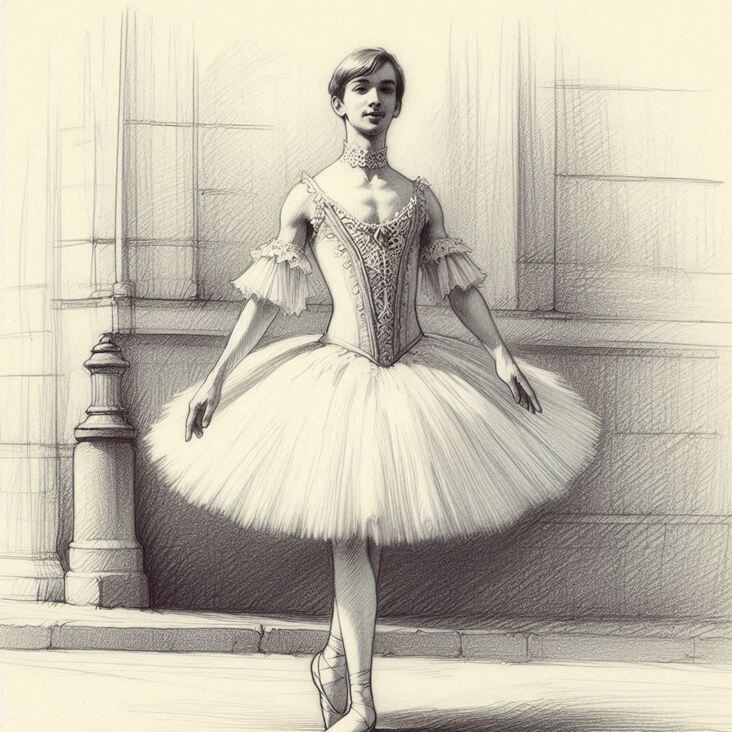
Bonjour, my dearest Tutu Twirlers!
It’s a glorious Tuesday morning here in Paris, the City of Lights and the beating heart of the dance world, and I’m positively bouncing with excitement to share this week’s #TutuTuesday adventure with you. Buckle your pointe shoes, grab your feather boas, and join me as we take a trip through time, back to July 20th, 1858.
Now, I'm not just saying this because I'm partial to pink, but the 1850s was a pretty blush-worthy period for ballet. Imagine the swirling skirts of a crinolined dress, the ethereal fabrics of a dancer’s costume, and the dramatic impact of gas lighting on the stage. The world was on the cusp of romanticism, both in art and in fashion. You could practically hear the music swelling from the ballet theatre down the street, the melody drifting through cobblestone alleys and past grand boulevards.
On this particular day, the Paris Opera Ballet is preparing for the opening night of a new ballet: “Giselle”. You’ve probably heard of it! Yes, that "Giselle." This wasn't just any performance though; it was a spectacle of ethereal grace and dramatic artistry. You can just imagine the young and beautiful dancers taking flight in their gauzy costumes, flitting across the stage with effortless beauty. Their tutus, not quite the poofy clouds we see today, were still more airy and fluid than previous corseted creations, showcasing the dancers' lines and movements. Oh, the magic of it all!
Speaking of costumes, don’t you just adore the evolving history of the ballet tutu? Back in the day, tutus were all about creating a soft, ethereal silhouette that complemented the dancer's movement. Imagine the thrill of the very first glimpses of that romantic shape. Think wispy tulle and diaphanous layers, delicately hand-stitched to highlight the flow of the dancer's every step and leap.
We're not too far away from the glorious days of Romantic ballet in the early 1800s, where these new airy tutus became synonymous with a lighter, more fluid form of dance. The dancers themselves became known as "sylphs," graceful ethereal creatures with long flowing hair, ethereal gestures, and light as air tutus that seemed to fly across the stage with every arabesque and pirouette.
I simply adore these early tutus. They weren’t quite as full as the traditional "bell" style that was gaining popularity, and still held more of that early 1800s romantic elegance. But, trust me, this delicate shift, this embracing of the softer form and graceful flow, would change the world of dance forever.
The Parisian air itself buzzed with anticipation for “Giselle.” It’s one of those ballets that continues to hold its place in the hearts of ballet enthusiasts across the world. We'll have to travel to a future Tuesday for that adventure, darling!
Meanwhile, how about we raise a glass of Champagne to this magnificent era of ballet history? It’s the perfect way to celebrate the ever-evolving history of our beloved tutus. Let's twirl and enjoy this magnificent ballet heritage! Until next Tuesday, happy dancing, lovelies!
Emma
P.S. Don’t forget to tag your favourite pink tutu photos with #TutuTuesday!
P.P.S. I'll be adding some links to my favourite tutus and ballet books in the comments. See you there!

